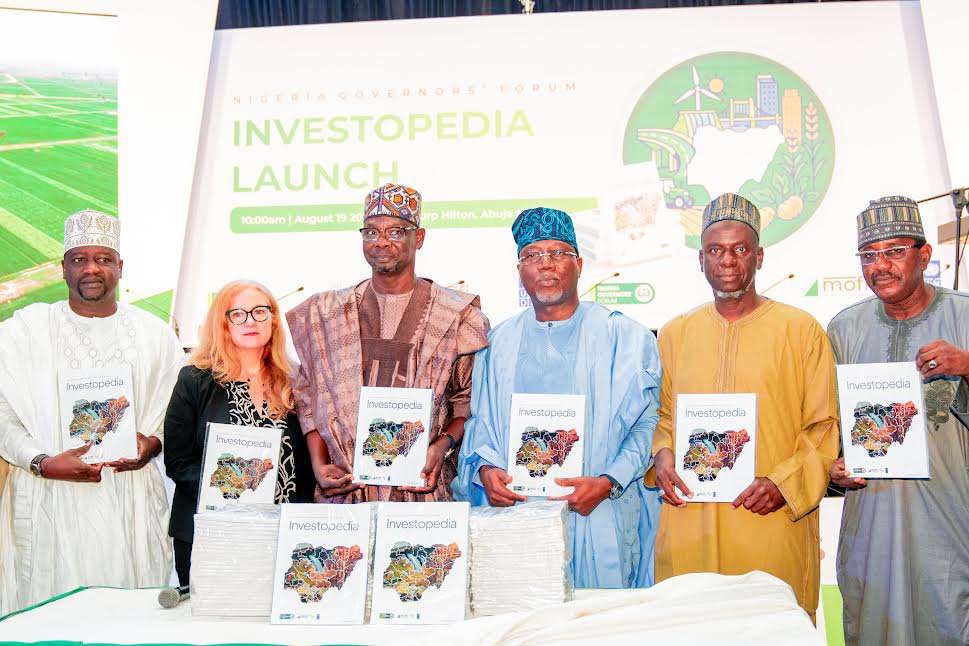Business
Experts doubt governors’ new NGF Investopedia will Lift Nigeria’s weak $2bn FDI inflow

Nigeria’s 36 state governors have launched NGF Investopedia, a new investment platform designed to attract foreign capital into state economies. The initiative, unveiled in Abuja on Tuesday, is aimed at addressing Nigeria’s chronically low Foreign Direct Investment (FDI) inflows, which have averaged just $2 billion annually, less than 0.5% of the nation’s GDP.
But analysts are skeptical. They argue that the problem is not a lack of information about opportunities in Nigeria’s states, but deep-rooted concerns about policy inconsistency, insecurity, corruption, and poor infrastructure.
“Investors already know where the opportunities are, from cocoa in the West to oil in the Niger Delta,” said Boason Omofaye, a financial analyst with Arise TV. “What deters them is not access to information but uncertainty about the safety of their investments, the enforceability of contracts, and the high cost of doing business.”
The NGF platform is being promoted as a “one-stop shop” for investors, consolidating vetted projects across the 36 states into a single pipeline.
The NGF Investopedia, a biennial publication, will feature major projects across sectors, provide market insights, and highlight incentives.
It will be published in print and digital formats and showcased at international platforms, including the UN General Assembly, Intra-African Trade Fair, and Africa Investment Forum.
According to NGF Chairman and Kwara State Governor AbdulRahman AbdulRazaq, the initiative is designed to close Nigeria’s $100 billion annual infrastructure financing gap and nearly $1 trillion over the next decade.
“This is not just a catalogue of opportunities,” AbdulRazaq said. “It is an entry point that shows investors how to invest in Nigeria with confidence.”
The NGF also unveiled a complementary financing vehicle, the NGF Fund, which will pool capital from partners such as Afreximbank, UNDP, the Ministry of Finance Incorporated (MOFI), the Central Bank of Nigeria (CBN), and the Nigeria Sovereign Investment Authority (NSIA). The Fund is expected to channel catalytic finance into subnational projects.
Despite being Africa’s largest economy, Nigeria has lagged behind peers in attracting FDI. In 2023, for instance, Egypt drew over $11 billion in FDI inflows while South Africa attracted nearly $6 billion, compared to Nigeria’s $2 billion.
Investors cite multiple hurdles, including security risks – kidnapping and insurgency in parts of the country, regulatory unpredictability – especially around taxation and foreign exchange policy, infrastructure deficits – with unreliable power supply and poor transport networks raising costs and high inflation and naira depreciation, which squeeze profitability.
The NGF says it is betting not only on global investors but also on intra-African capital flows, which have been rising in recent years. Investors from South Africa, Morocco, Egypt, and Ghana have already expanded into Nigerian banking, fintech, agribusiness, and infrastructure.
With the African Continental Free Trade Area (AfCFTA) opening new regional opportunities, governors are hopeful that the Investopedia platform can position Nigerian states as credible, competitive destinations for capital.
However, many experts argue that the litmus test will be whether governors match rhetoric with reforms.
Without concrete improvements in governance, security, and economic stability, they say, Nigeria risks watching Investopedia join a long list of glossy investment initiatives that failed to deliver.


